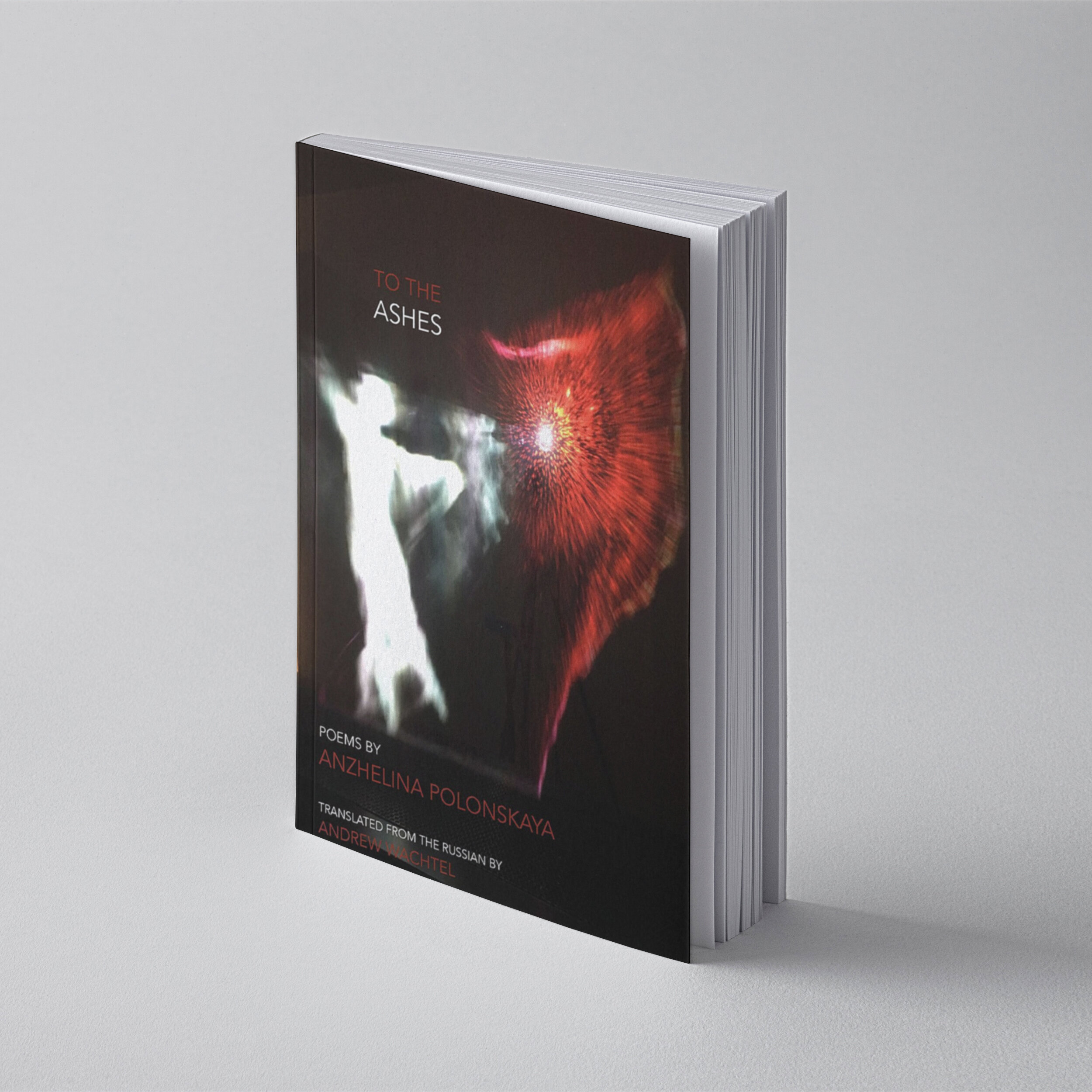To the Ashes by Anzhelina Polonskaya
Translated from the Russian by Andrew Wachtel
Anzhelina Polonskaya’s newest collection reflects unflinchingly upon themes of exile and the anguish it can cause, as well as home, war, authoritarianism, and personal relationships. Trains and ships figure in many poems, but their overall trajectory takes us to the edge of a precipice: of loss, separation, death, and mortality.
Polonskaya's first collection with Zephyr Press, Paul Klee's Boat, was short-listed for both the 2014 PEN Poetry in Translation Award and the 2014 Best Translated Book Award. Because of her poems of political dissent, notably "Kursk: An Oratorio Requiem," which describes the 2000 sinking of the Russian submarine, Polonskaya received death threats and lived in exile for a number of years. To the Ashes allows both English-speaking and Russian readers to read her latest work, since she has not been able to publish her poetry in her native country.
Polonskaya began writing poems seriously at the age of seventeen, while training to be — and then employed as — a professional ice dancer. She spent eight years working in an ice show in Russia, and another three in Central and South America during the 1990s, before turning full-time to poetry. Because Polonskaya did not receive a classic Russian literary education, her work is less anchored in tradition and more personal and idiosyncratic than that of many of her contemporaries. She has published several books of poems and short stories. In 2016, she received the Words on Border Freedom Prize in Norway.
Andrew Wachtel is the president of the American University of Central Asia in Bishkek, Kyrgyzstan. Previously he was dean of The Graduate School and director of the Roberta Buffett Center for International and Comparative Studies at Northwestern University. A fellow of the American Academy of Arts and Sciences, a member of the Council on Foreign Relations, and the author of numerous publications, he is also a translator from Russian, Bosnian, Croatian, Serbian, and Slovene.
Translated from the Russian by Andrew Wachtel
Anzhelina Polonskaya’s newest collection reflects unflinchingly upon themes of exile and the anguish it can cause, as well as home, war, authoritarianism, and personal relationships. Trains and ships figure in many poems, but their overall trajectory takes us to the edge of a precipice: of loss, separation, death, and mortality.
Polonskaya's first collection with Zephyr Press, Paul Klee's Boat, was short-listed for both the 2014 PEN Poetry in Translation Award and the 2014 Best Translated Book Award. Because of her poems of political dissent, notably "Kursk: An Oratorio Requiem," which describes the 2000 sinking of the Russian submarine, Polonskaya received death threats and lived in exile for a number of years. To the Ashes allows both English-speaking and Russian readers to read her latest work, since she has not been able to publish her poetry in her native country.
Polonskaya began writing poems seriously at the age of seventeen, while training to be — and then employed as — a professional ice dancer. She spent eight years working in an ice show in Russia, and another three in Central and South America during the 1990s, before turning full-time to poetry. Because Polonskaya did not receive a classic Russian literary education, her work is less anchored in tradition and more personal and idiosyncratic than that of many of her contemporaries. She has published several books of poems and short stories. In 2016, she received the Words on Border Freedom Prize in Norway.
Andrew Wachtel is the president of the American University of Central Asia in Bishkek, Kyrgyzstan. Previously he was dean of The Graduate School and director of the Roberta Buffett Center for International and Comparative Studies at Northwestern University. A fellow of the American Academy of Arts and Sciences, a member of the Council on Foreign Relations, and the author of numerous publications, he is also a translator from Russian, Bosnian, Croatian, Serbian, and Slovene.
Translated from the Russian by Andrew Wachtel
Anzhelina Polonskaya’s newest collection reflects unflinchingly upon themes of exile and the anguish it can cause, as well as home, war, authoritarianism, and personal relationships. Trains and ships figure in many poems, but their overall trajectory takes us to the edge of a precipice: of loss, separation, death, and mortality.
Polonskaya's first collection with Zephyr Press, Paul Klee's Boat, was short-listed for both the 2014 PEN Poetry in Translation Award and the 2014 Best Translated Book Award. Because of her poems of political dissent, notably "Kursk: An Oratorio Requiem," which describes the 2000 sinking of the Russian submarine, Polonskaya received death threats and lived in exile for a number of years. To the Ashes allows both English-speaking and Russian readers to read her latest work, since she has not been able to publish her poetry in her native country.
Polonskaya began writing poems seriously at the age of seventeen, while training to be — and then employed as — a professional ice dancer. She spent eight years working in an ice show in Russia, and another three in Central and South America during the 1990s, before turning full-time to poetry. Because Polonskaya did not receive a classic Russian literary education, her work is less anchored in tradition and more personal and idiosyncratic than that of many of her contemporaries. She has published several books of poems and short stories. In 2016, she received the Words on Border Freedom Prize in Norway.
Andrew Wachtel is the president of the American University of Central Asia in Bishkek, Kyrgyzstan. Previously he was dean of The Graduate School and director of the Roberta Buffett Center for International and Comparative Studies at Northwestern University. A fellow of the American Academy of Arts and Sciences, a member of the Council on Foreign Relations, and the author of numerous publications, he is also a translator from Russian, Bosnian, Croatian, Serbian, and Slovene.

